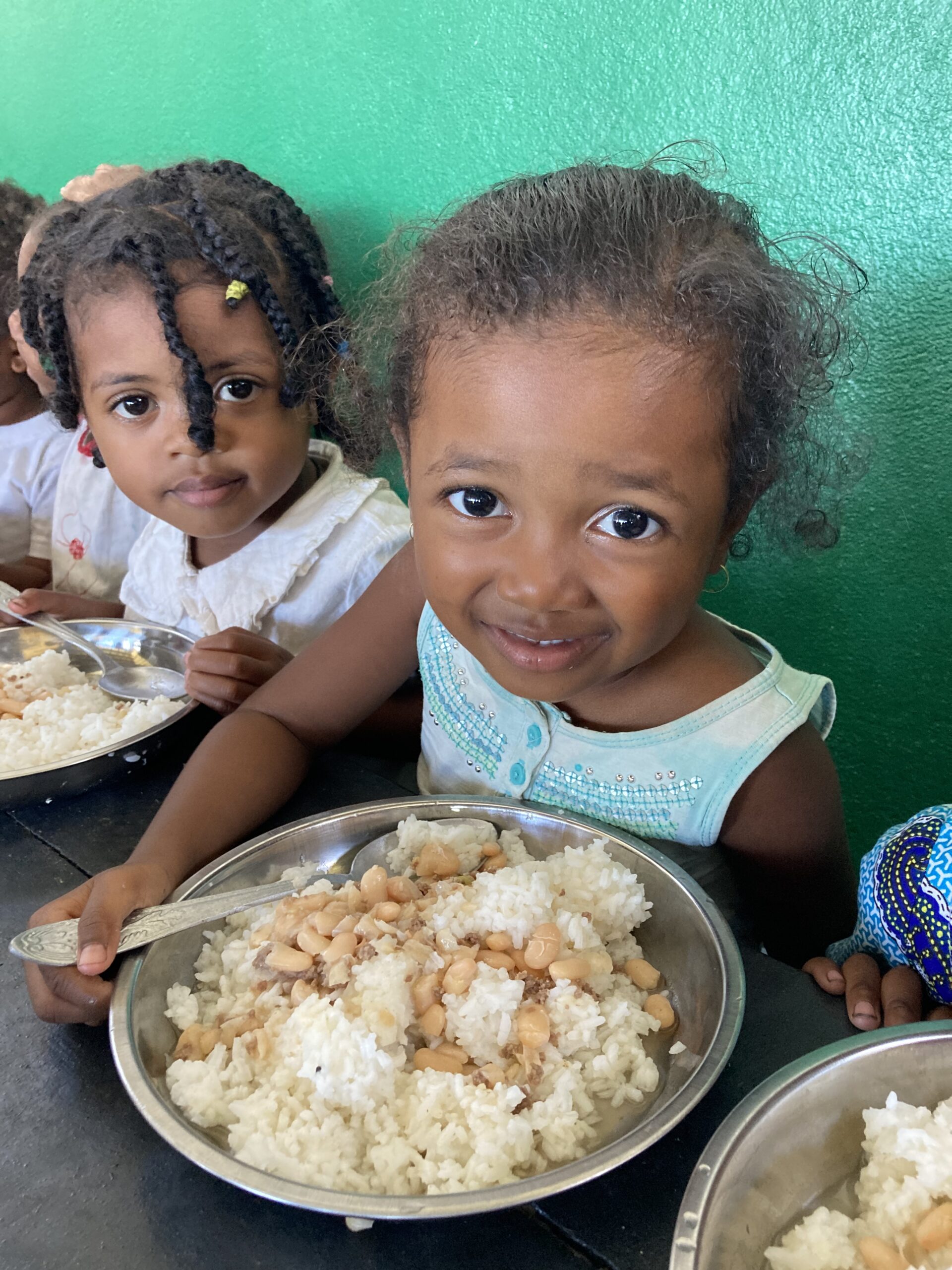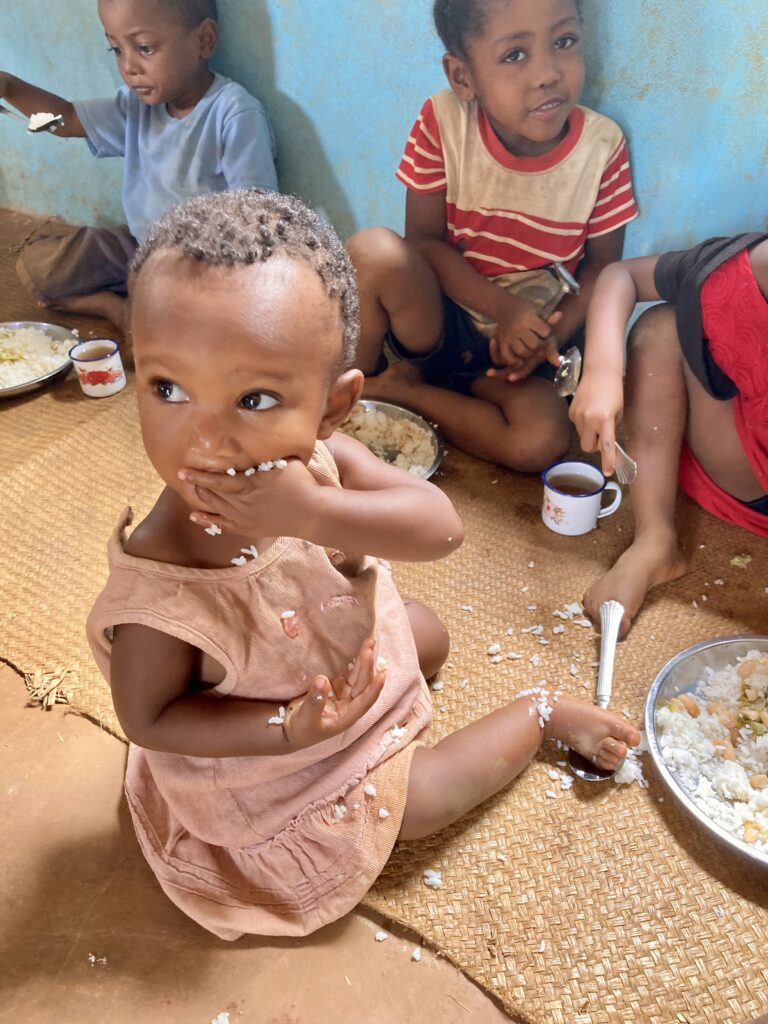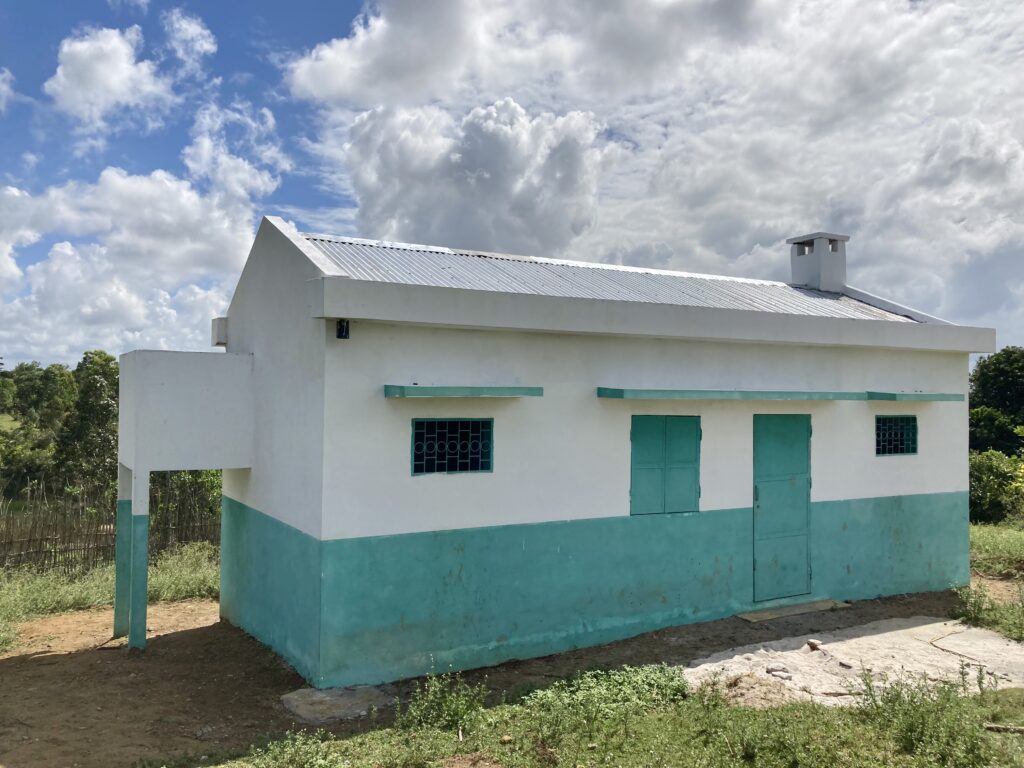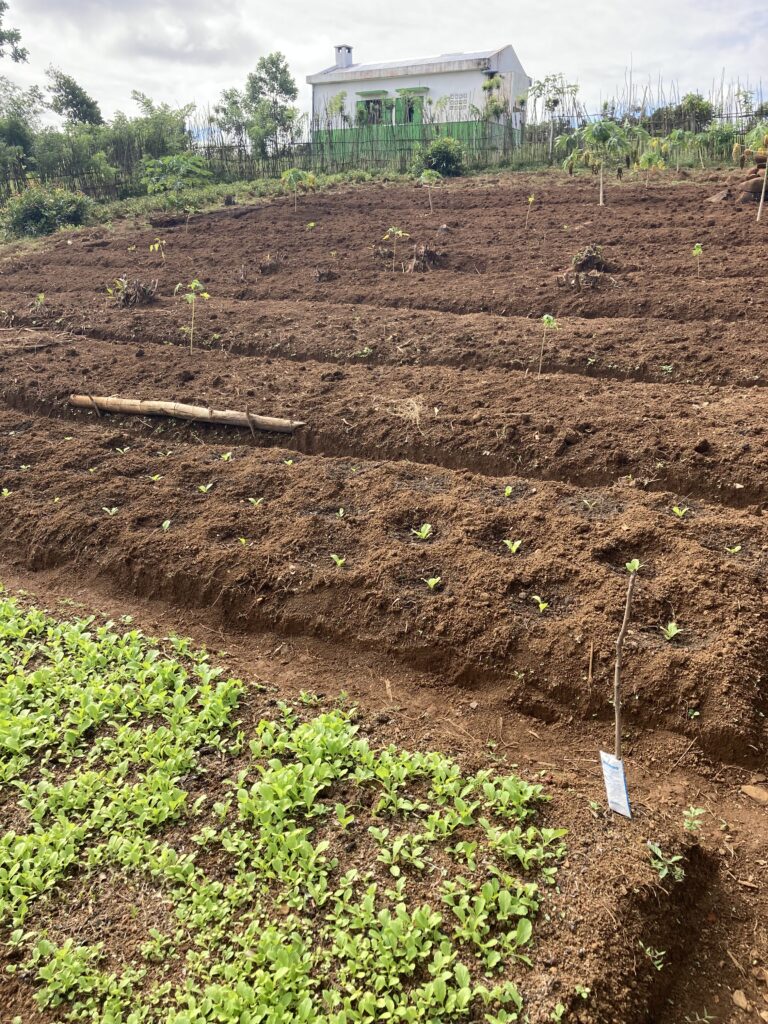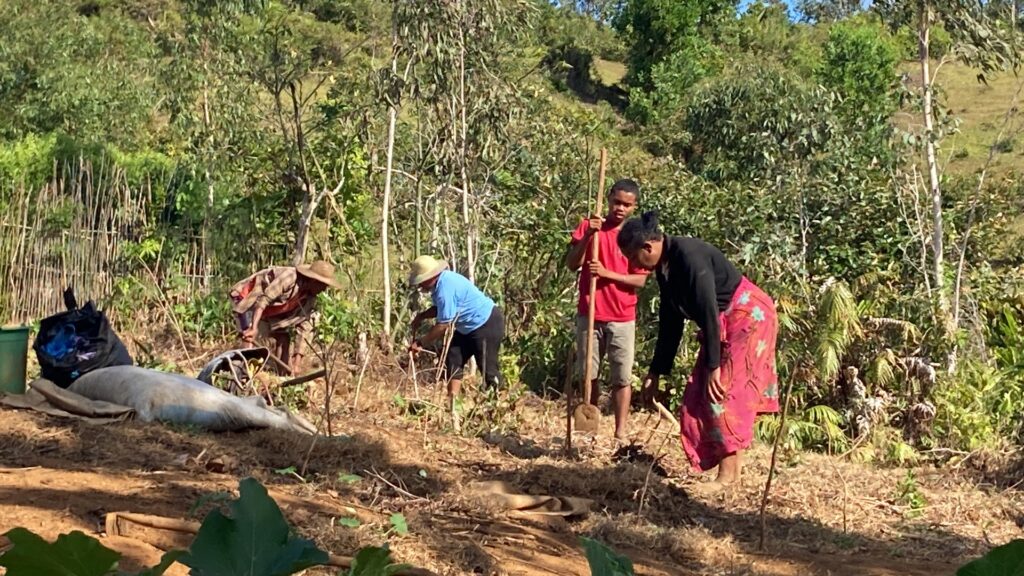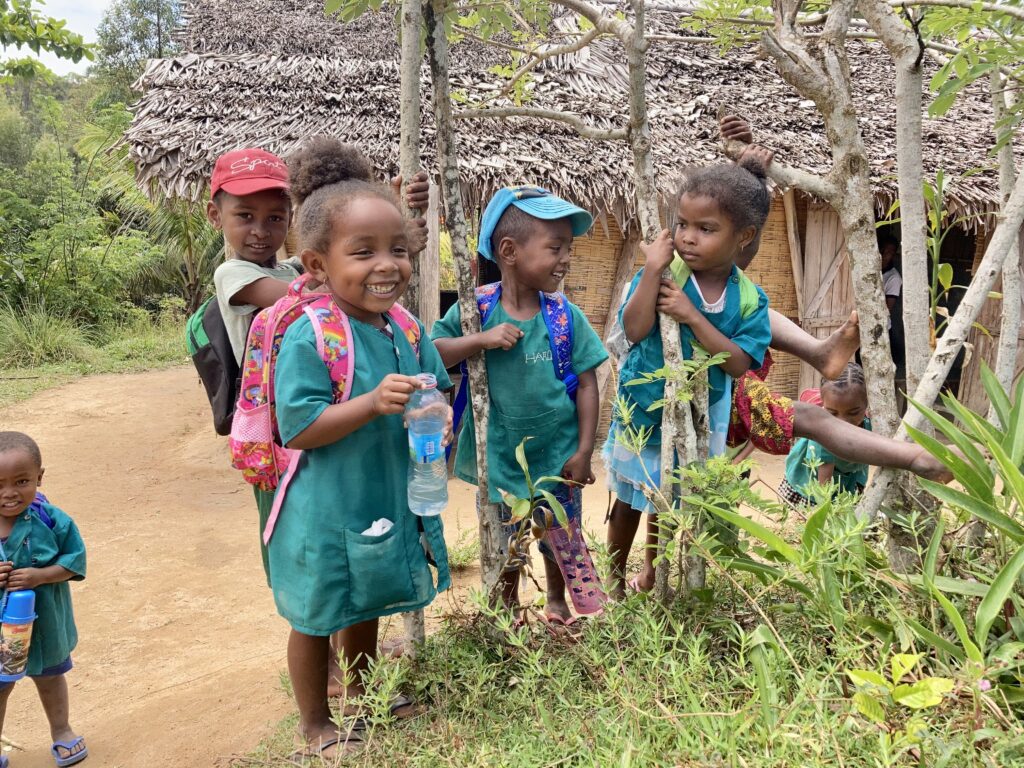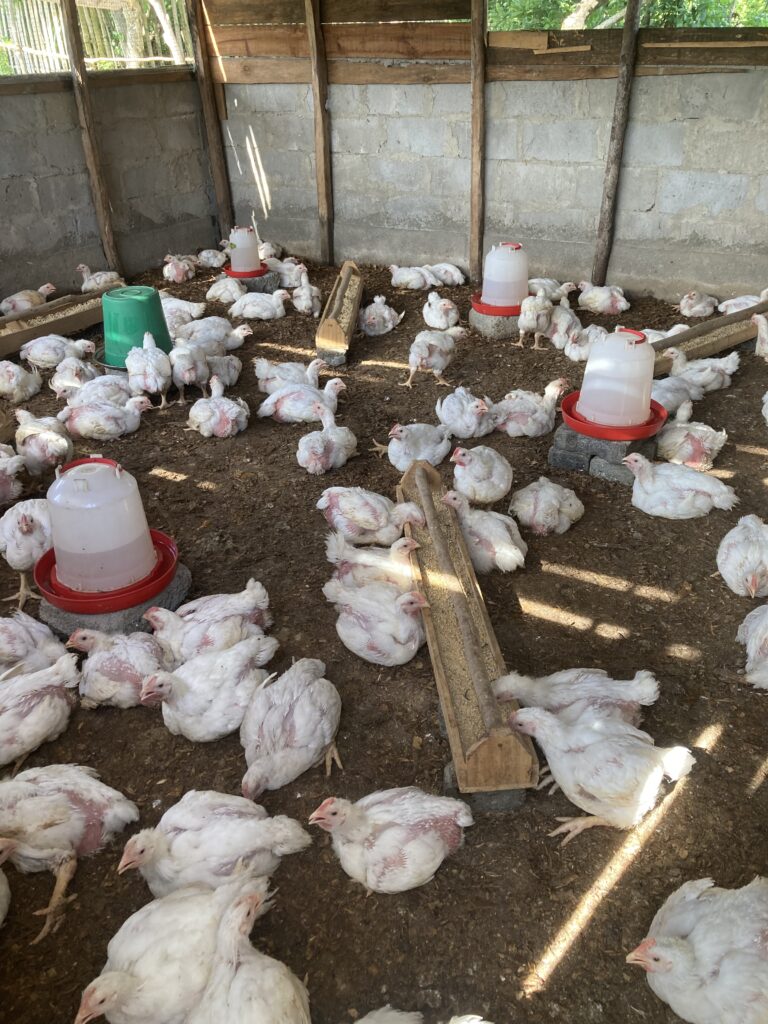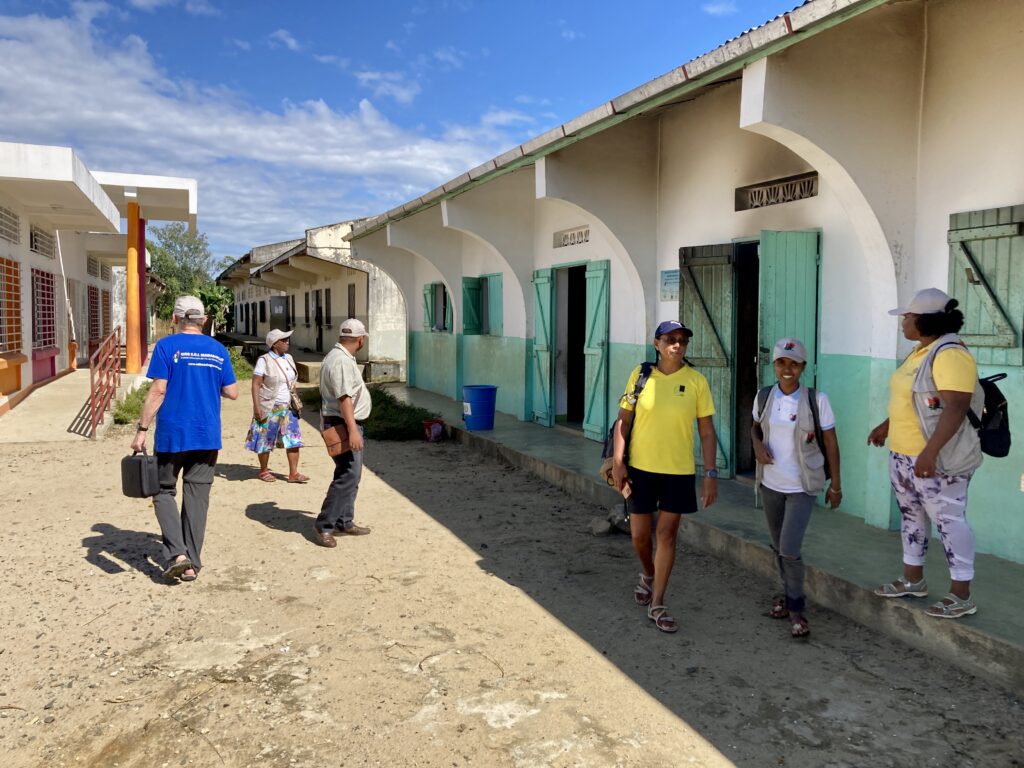In the rural areas of Madagascar, hunger has become one of the main causes of school dropout. Indeed, how can one focus on their studies when they have an empty stomach?
The children of the Brickaville region have not been spared by fate, as it is struck by cyclones every year. They are the primary victims, even though they are the future of a country ranked 5th among the poorest in the world.
In times of need, parents pull them out of school to work in the fields, as they must feed the family.
To prevent this situation and ensure they no longer attend school on an empty stomach, EDI Madagascar has established school canteens in 6 primary schools (approximately 1,500 children), which now allow them to eat at least once a day. For many of them, this is the only meal of the day.
Our goal was to make the canteens self-sufficient. The creation of vegetable gardens and community farms is both a source for supplying the canteen and a fun way to provide training.
The implementation of income-generating activities helps meet the financial needs :
Provision of equipment to farmers and fishermen in exchange for a portion of their production to supply the canteen, implementation of rice milling, vegetable farming areas, and various livestock.
All these activities were accompanied by training in good governance and savings.
Our goal was not to provide assistance, but to be the initiator of a sustainable mechanism.
To be on the safe side, we waited until the end of the rainy season before starting construction work. The first school to benefit from our canteen is Manambato. It is indeed the most advanced school: the vegetable garden and a well have already been created, and the canteen committee is in place. We hope that the canteen will be operational after our summer holidays, at the beginning of the 4th quarter of 2019. It is also now that William, our volunteer, is settling in Brickaville. He will be a valuable help in starting and energizing this project.
September 2019
Manambato is progressing well: the kitchen is finished, and a farm is under construction. It will house 60 young laying hens, which should, within 2 to 3 months, provide at least one egg per hen per day: a source of protein and an income source for the Manambato canteen.
In parallel, two other schools are being prepared: the construction contract for the Sahatakoly kitchen was signed at the beginning of this month, and the work can now begin.
Additionally, an abandoned building was found on the grounds of the Vohitranivona school. Rather than building a kitchen, our volunteer William negotiated with the CISCO chief to rehabilitate this building and turn it into a kitchen and a classroom for preschool children who currently have no permanent classroom. The cost of refurbishing the building and constructing the classroom will be roughly the same as building a kitchen.
The beginning of the year was a bit chaotic for the students in the region: the school year started on October 28th, followed by All Saints’ holidays starting November 1st, and communal elections that kept all the adults busy for several days. In short, it wasn’t until the end of November that the situation stabilized, and the children began attending school regularly.
On December 2nd, the first meals were served to the children of Manambato, balanced meals, based on advice from nutrition experts who provided training to the teachers and members of the canteen management committee.
Meanwhile, the work at Sahatakoly has not stopped: the kitchen and a nearby area are nearing completion. Agricultural training has been provided to the committee members to improve the yield of the vegetable gardens.
